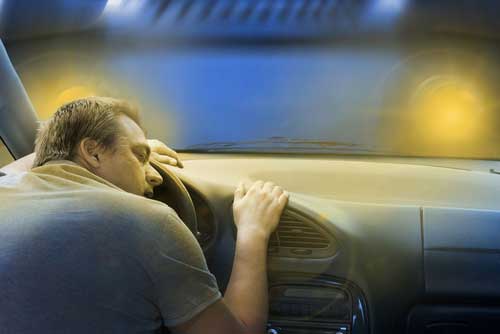
If a drunk person falls asleep in a parked vehicle, is it impaired driving? It might depend on who you ask, and which province you’re in when the incident happens.
 In a recent Ontario case, an impaired man who was found sleeping in a running vehicle after drinking was found not guilty of any criminal offences. Why?
In a recent Ontario case, an impaired man who was found sleeping in a running vehicle after drinking was found not guilty of any criminal offences. Why?
The ruling last week in the Ontario Court of Justice, R. v. Toyota, should help lawyers handling impaired driving offences. The decision addresses the risk-of-danger element of care and control of a vehicle in the Criminal Code.
Justice Alan D. Cooper ruled that defendant Ryan Toyota was not guilty of a crime for falling asleep in a parked vehicle outside a housing complex in Burlington, Ont. in February 2015, with the engine running and the exterior lights on. Court heard Toyota was drunk but planned to stay at a friend’s house, and only slept in the vehicle because he was locked out of the home.
The ruling focuses on a section of the Criminal Code in which the presumption of care or control of a vehicle is established. Cooper’s ruling refers to case law established by the Supreme Court of Canada in R. v. Boudreau “that the risk of danger is an essential element of care and control.”
“In the opinion of this court, the cumulative defence evidence has satisfied me on a balance of probabilities that Mr. Toyota had no intention of driving his vehicle home that night. He was sleeping in his car, with the engine on to get heat, only because his homeowner friend had passed out and had locked Mr. Toyota out,” said the ruling.
“The clear plan was for the defendant to spend the night inside that residence so he would not have to drive home. The presumption of care and control has been rebutted.”
According to the case history outlined in ruling, police arrived at the housing complex and found Toyota sleeping in the vehicle, in below-zero temperatures. After the officer opened the car door and smelled alcohol within the vehicle, the officer asked Toyota to step out.
The officer noted Toyota was groggy, and had glassy eyes and slurred speech. Police arrested Toyota and took him to a police station for testing.
Cooper indicates in his ruling that the police gave evidence “the car as parked properly, and there is no evidence that it would be a danger to anyone by virtue of where it was located.”
“It is necessary to consider whether a realistic risk of danger still existed because Mr. Toyota, in his inebriated state, might have changed his mind and driven somewhere, or might have unintentionally set the vehicle in motion,” said the ruling.
Cooper goes on to say “although the defendant’s blood-alcohol readings were 160 and 160 milligrams of alcohol in 100 millimetres of blood, it is my view that once awake, it is very unlikely that he would have changed his mind and driven home. I also find it unlikely he would have unintentionally set his vehicle in motion in his intoxicated condition. To set the car in motion he would have had to put his foot on a brake, push a button, and pull the gear lever back.”
Therefore, Cooper concludes the Crown didn’t prove its case that Toyota presented “a realistic risk of danger in the particular circumstances.”
It’s not the first time cases have emerged on how drunk driving is defined, or prosecuted, under the Criminal Code. Last month, media reported that the Royal Newfoundland Constabulary charged a 33-year-old man with impaired driving and other offences after finding him asleep in his vehicle.
The Edmonton Sun also reported in 2013 on a case where a woman as charged for falling asleep in her vehicle after drinking, and expressed displeasure with Alberta’s impaired driving laws.
He called the approach “Draconian” and said the law “mandates an immediate three-day impoundment of an offender’s vehicle and three-day suspension of his or her licence on first offence. No trial, no appeal, not even a chance to call your lawyer.”